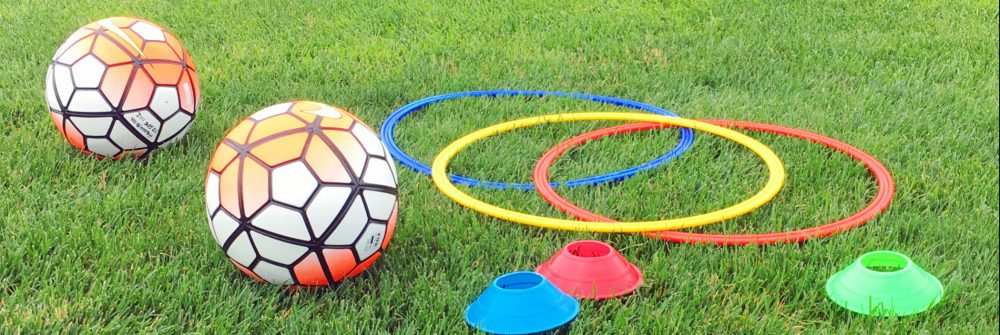As an athlete, it is inevitable that you will face adversity at some point in your playing career, in fact, there will be frequent challenges which is simply the nature of sports. As a parent, you must decide at what point you allow your child to manage those trials with on their own (but with your support). It is easy to want to get involved and protect your child(ren). As a parent myself, it is natural to think that you know what is best for your kids. Starting in the teen years, it is important for the player to take ownership and develop skills and experience to speak with teammates, trainers, coaches and administrators both at times of adversity and when times are good. As a youth athlete, developing healthy relationships and building communication skills and coping mechanisms is not only a requirement but a perfect developmental opportunity to prepare you for life.
This article will highlight the benefits of building these skills as well as provide some high-level, yet practical tips and strategies to deal with Adversity. An inevitable part of both life and sports, youth athletes are bound to encounter various challenges and setbacks throughout their athletic journeys. However, these experiences can also present valuable opportunities for growth and development. In this article, we will explore the benefits of managing adversity for youth athletes and provide guidance on effectively navigating these challenges.
Benefits of Managing Adversity:
- Resilience: Managing adversity contributes to the development of resilience. Adversity serves as a powerful teacher, enabling athletes to learn how to bounce back from setbacks and become mentally tougher. By effectively managing and overcoming challenges, athletes can enhance their resilience and be better equipped to handle future obstacles.
- Adaptability: Adversity helps youth athletes become more adaptable. When faced with unexpected challenges or changes, athletes learn to adjust their approach and discover new solutions. This fosters creativity, and resourcefulness, and equips them to handle the unpredictable nature of sports.
- Perseverance: Managing adversity fosters greater perseverance. When confronted with challenges or setbacks, athletes may be tempted to give up or lose motivation. However, by persevering through these difficulties, athletes develop mental toughness and find increased motivation to work towards their goals.
Navigating Adversity:
- Stay Positive: Maintaining a positive attitude is crucial in managing adversity. By focusing on the lessons learned and the opportunities for growth, athletes can stay motivated and focused even in the face of setbacks.
- Seek Support: Seeking support from coaches, teammates, or family members is an important strategy in managing adversity. It helps athletes feel less alone and more motivated to overcome challenges. Additionally, seeking support provides valuable insights and guidance on how to navigate difficult situations.
- Learn from Experience: Instead of simply moving on from challenging experiences, it is important to reflect on what was learned and how those lessons can be applied in the future. By learning from adversity, athletes can develop greater resilience, adaptability, and perseverance.
The strategies and approaches mentioned in the previous sections contribute to the development of important life skills for youth athletes. Let’s explore how each aspect helps in building these skills:
- Resilience: Managing and overcoming adversity fosters resilience, which is a crucial life skill. By facing challenges, setbacks, and failures in sports, athletes learn to bounce back, persevere, and maintain a positive attitude in the face of difficulties. This resilience can be transferred to various areas of life, helping individuals navigate personal and professional challenges.
- Adaptability: Adversity teaches athletes to adapt their approach and find new solutions. This skill is valuable not only in sports but also in everyday life, where unexpected situations and changes are common. Learning to adjust and be flexible in the face of challenges prepares individuals to handle different circumstances and problem-solve effectively.
- Perseverance: Overcoming challenges and setbacks requires perseverance. By staying motivated, pushing through obstacles, and continuing to work towards their goals, athletes develop mental toughness and the ability to persist in the face of adversity. This determination and perseverance can be applied to various aspects of life, helping individuals overcome obstacles and achieve long-term success.
- Communication and Assertiveness: Speaking directly to coaches and expressing concerns or conflicts helps youth athletes develop vital communication and assertiveness skills. It teaches them how to articulate their needs, opinions, and feelings in a respectful and assertive manner. These skills are essential for effective communication, building relationships, and advocating for oneself in various personal and professional settings.
- Conflict Resolution: Addressing issues with coaches directly promotes conflict resolution skills. By engaging in open and honest communication, athletes learn to navigate disagreements, find common ground, and work towards mutually beneficial solutions. These conflict-resolution skills are applicable in various contexts, such as interpersonal relationships, teamwork, and problem-solving situations.
- Independence and Autonomy: Encouraging youth athletes to address concerns with coaches fosters autonomy and self-advocacy skills. It helps athletes develop the ability to take responsibility for their own experiences, make independent decisions, and assert their needs. These skills empower individuals to navigate challenges, make choices aligned with their goals and values, and take ownership of their personal and professional lives.
By actively engaging in managing adversity, speaking directly to coaches, and implementing the strategies mentioned, youth athletes develop a range of life skills that extend beyond the realm of sports. These skills contribute to their personal growth, resilience, effective communication, problem-solving abilities, and overall success in various areas of life.
When faced with challenges, both caregivers and the athlete themselves should discuss what is going on, break it down and develop a plan that puts the athlete in the position to respond and manage that challenge. Stay tuned for the next article as we dig deeper into the “When, Why, and How” to speak with coaches, teachers, and adminsitrators.
Follow this blog and on social media, @coachrich8 on Instagram, Facebook, and Twitter to learn critical life skills through youth sports.

